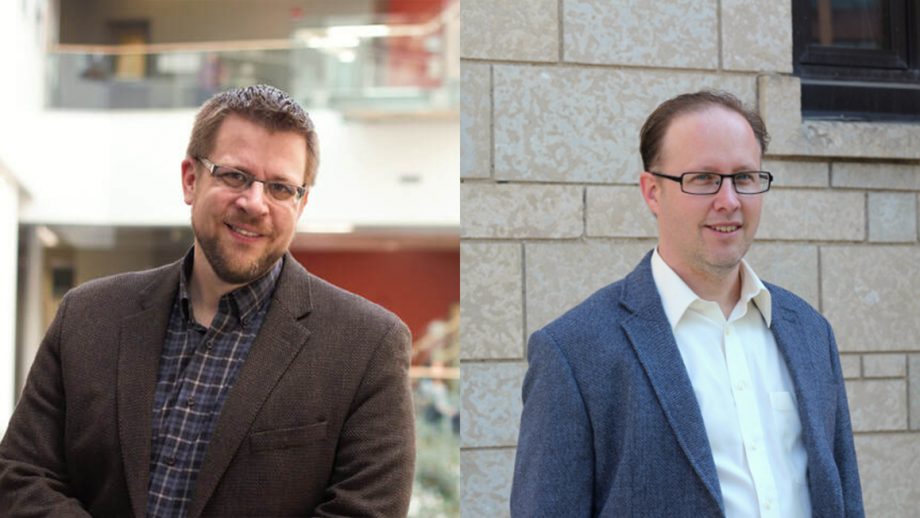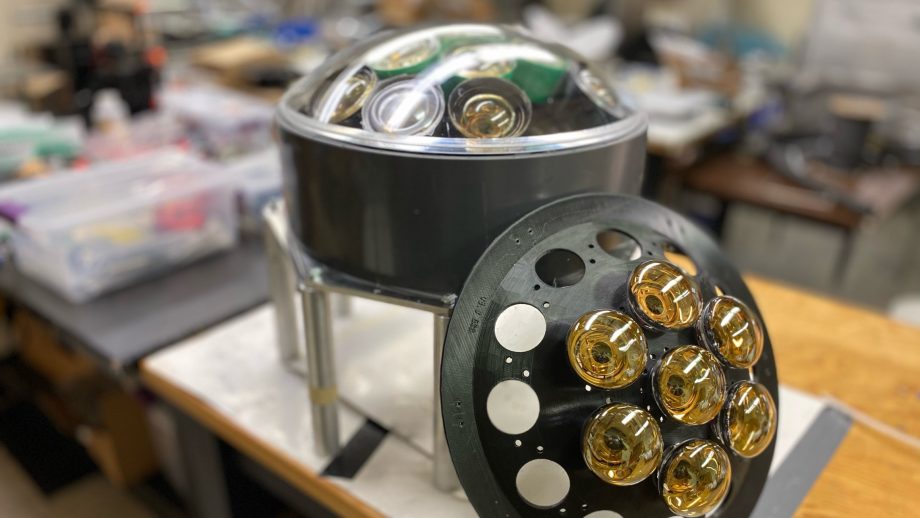The University of Winnipeg has received more than $270,000 in Government of Canada funding through the Canada Foundation for Innovation (CFI) to ensure researchers have the labs and equipment they need to carry out world-class research and technology development.
Creating a more conducive space for innovation will promote student participation in cutting-edge research and train a new generation of leaders in the discipline.
Dr. Yadira Chinique de Armas
The Laboratory of Osteoarchaeology (Dr. Yadira Chinique de Armas with co-applicant Dr. Mirjana Roksandic) and the Centre for Molecular Structure Determination (Dr. Jamie Ritch with co-applicants Drs. Chris Wiebe and Athar Ata) were the two projects that received funding to improve their research capabilities.
“UWinnipeg is rapidly developing a strong profile in research and innovation based on collaborative interdisciplinary studies, enhancing its role in the global exchange of knowledge,” said Dr. Jino Distasio, Vice-President of Research and Innovation.
Chinique de Armas and Roksandic’s funding is for the Laboratory of Osteoarchaeology, and will assist in the lab’s infrastructure and will contribute to the development of the unique Movement, Interaction, Resilience, and Adaptation: The Human-Environment Nexus in the Past (MIRA) research program led by Roksandic.
Using cutting-edge tools for precision sampling and 3D imaging to obtain greater resolution, the research team will combine different lines of evidence to detect and characterize lifetime events in bones and teeth to identify markers of dietary practices, migrations, and climatic change, and to characterize plant microremains for more precise identification in archaeological contexts.
“Innovative cross-fertilization of these lines of evidence of human-environment interactions will greatly contribute to our understanding of the past societies,” said Chinique de Armas. “Creating a more conducive space for innovation will promote student participation in cutting-edge research and train a new generation of leaders in the discipline.”
The development of the MIRA facilities through the Laboratory of Osteoarchaeology will enhance the space for innovation in Manitoba and increase student participation in cutting-edge research and train a new generation of leaders in archaeological science.
The MIRA research program is founded on six collaborative interdisciplinary projects conducted by Chinique de Armas and Roksandic in the Caribbean and the Balkans. It is funded through Social Sciences and Humanities Research Council (SSHRC), Natural Sciences and Engineering Research Council of Canada (NSERC), and European Research Council (ERC) grants.
The Centre for Molecular Structure Determination’s funding will help buy a polarizing stereomicroscope and a single-crystal X-ray diffractometer (SC-XRD). The SC-XRD is an instrument capable of determining the precise positions of atoms within a crystal of a compound. It is considered the ‘gold standard’ for chemical structure determination. This will establish a state-of-the-art X-ray structure determination facility at UWinnipeg’s Department of Chemistry.
“当新的分子或材料应用lication, it is vital to know its detailed atomic structure to understand how structure relates to performance so that improved versions can be made logically,” said Ritch. “Having both the microscope to assess and screen crystals and the SC-XRD for structure determination as in-house facilities greatly enhances our ability to conduct exciting science in the area of compound discovery.”
UWinnipeg’s researchers play a crucial role in advancing science and society.
“Innovation is built on new ideas and discoveries that can be implemented not only to enable major scientific advances, but to improve the daily lives of every Canadian,” said Roseann O’Reilly Runte, President and CEO, Canada Foundation for Innovation. “Through the projects supported by the CFI today, and through increased collaboration between the academic and entrepreneurial sectors, society benefits from the tangible improvements that will contribute to making Canada an even more prosperous nation.”
About the Canada Foundation for Innovation
For 25 years, the Canada Foundation for Innovation has been making financial contributions to Canada’s universities, colleges, research hospitals, and non-profit research organizations to increase their capability to carry out high-quality research. The CFI invests in infrastructure that researchers need to think big, innovate, and push the boundaries of knowledge. It helps institutions to attract and retain the world’s top talent, to train the next generation of researchers, and to support world-class research that strengthens the economy and improves the quality of life for all Canadians.





